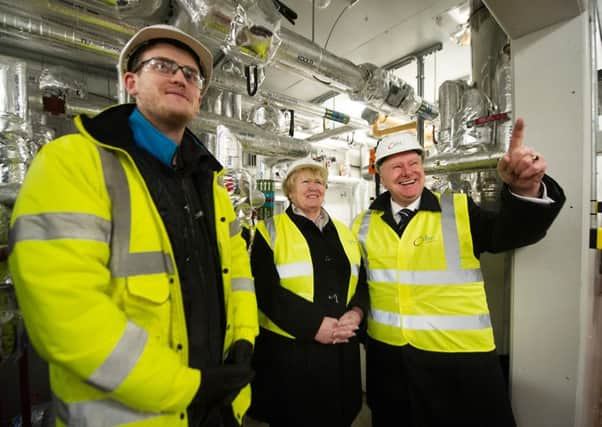Andy Yuill: Blowing hot and cold can be positive


As the good weather settles across Scotland and temperatures rise, people start to think about ice cream and BBQs. With air-conditioning blasting out cool air into cars and offices, it’s also an appropriate time to think about the oft-forgotten side of low-carbon heating: low-carbon cooling.
For some, the need to keep things cool is a year-round requirement. Keeping temperatures under control is a core issue for distribution centres and hospitals, computing data centres and manufacturing. But the heat removed is all too often lost to the atmosphere. We’re missing a chance to recycle it.
Advertisement
Hide AdAdvertisement
Hide AdIt would therefore seem to be a logical step for support for low-carbon sources of cooling and reuse of waste heat to be included in a scheme designed to decarbonise the heat energy sector. Yet the Renewable Heat Incentive specifically excludes renewable energy delivered in the form of cooling from support and also excludes waste heat as a source of heat energy.
The technology for integrating waste heat and cooling loads already exists in a tried and tested form: the heat pump. Heat pumps take excess heat from one location and move it to another location which requires heat – hence the word “pump”.
The support mechanism to bring about integrated heating and cooling systems could be much simpler than the current Renewable Heat Incentive. Instead of picking and choosing preferred technologies and solutions, we would bring forward a cost effective and technically efficient low-carbon future for heat.
Excluding cooling and re-use of waste heat from the Renewable Heat Incentive misses the huge opportunity for low-carbon heating and cooling. To make a meaningful reduction to the emissions associated with heat, our largest single use of energy in Scotland, then all options which have the opportunity to reduce emissions must be on the table
• Andy Yuill is senior biomass manager at naturalpower.com renewable energy consultants